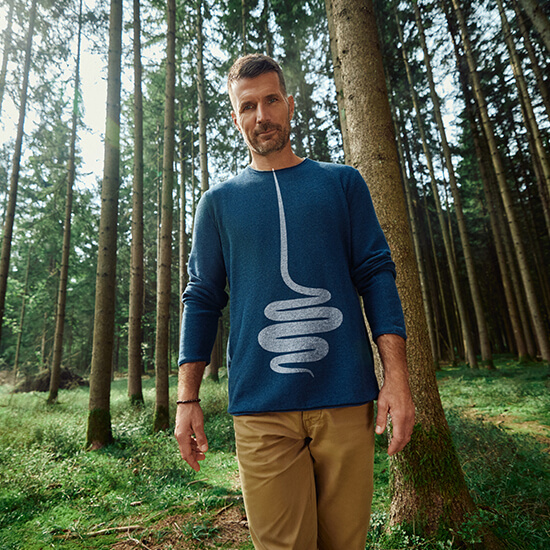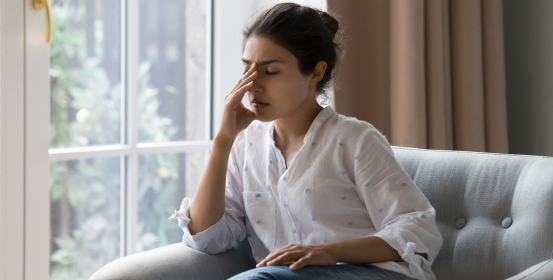There is no life without water. We learned when we were kids that a person can survive up to three weeks without food, but barely a few days without water. Despite that, many people are still chronically dehydrated because all of us often do not drink enough water during the day.
If you make an effort to keep your body well hydrated (and feed it well), you can get much more from it in return. Keep reading to find out more about the advantages of drinking water and what happens to water after you drink it: where it goes, how the body uses it to feed vital functions, how much time is needed to digest water, etc.
Why is Drinking Water Important?
As mentioned above, you cannot survive without water. It literally supports all your vital functions and makes sure you are able to think clearly and operate normally.
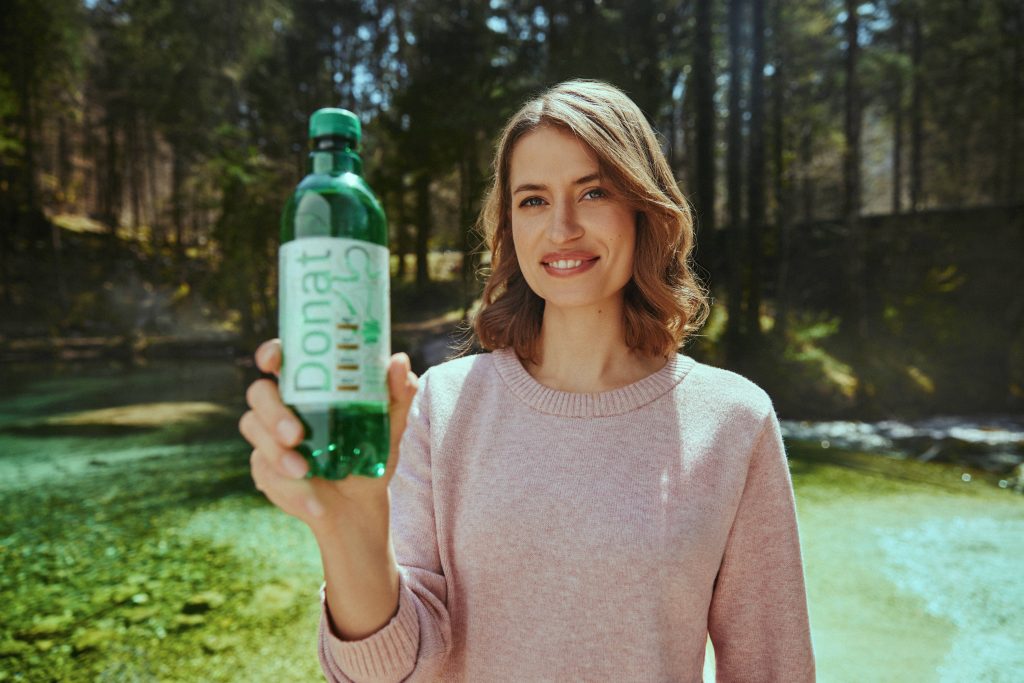
Water also has an extremely beneficial effect on our digestive process.
So what does water do for healthy digestion?
1. Creating saliva
Water represents the main component of saliva. Digestion already starts in your mouth when saliva starts breaking down the food, which is why water plays an important role in the first step of this process.
2. Getting rid of body waste
Water is crucial for sweating, urinating, and normal bowel movements through which your body disposes of different sorts of waste.
Sweat helps your body regulate temperature and can lead to dehydration if you do not replenish the lost fluid.
Enough water is also needed for excretion of stool, otherwise you can end up constipated. Another organ involved in the disposal of waste are kidneys that filter it out before urination. If your body is low on water, the kidneys cannot function properly and can start forming kidney stones.
3. Preventing constipation
As previously mentioned, constipation can occur if you do not drink enough water which can then have harmful and negative consequences. When you are dehydrated, your intestines cannot add water to the stools and they have to take it directly from the food you consume. This leads to slow digestion, i.e dry and hard stools that are difficult to pass.
4. Speeding up transit time
Wait a minute, is it even true that water accelerates digestion? Many people believe that drinking while eating can cause digestive problems. However, drinking water before, during and even after eating can actually help your body to break down consumed food more quickly and easily.
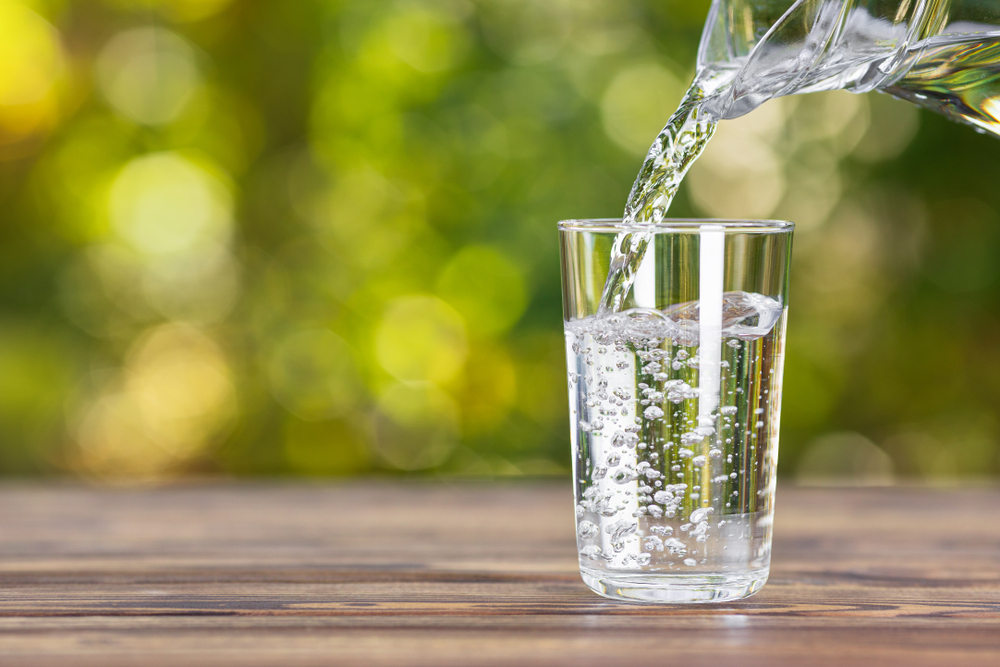
5. Improving nutrient absorption
Drinking water during, and even after eating can actually help your body break down the eaten food in a faster and easier way.
Moreover, water helps to dissolve vitamins, minerals and other beneficial nutrients found in your food and delivers them to different organs in your body.
How Much Water Should You Drink?
Many people have problems with drinking enough water because they simply forget to drink it. A natural reaction of your body to such neglect is called feeling thirsty. However, when your body tries to attract your attention and make you finally drink that glass of water, it is already dehydrated.
You have probably heard of the “8 glasses of water per day rule”, however, is this really the optimal amount for you?
Ideally, men should drink around 3 liters of water, since these are approximately their needs. Women, on the other hand, should get around 2 liters of water exclusively from beverages.
If you are not sure whether you drink enough water, then start listening to your body more closely – it will alert you by making you feel thirsty. Your body is telling you it is thirsty?
CTA: Do you know the best way to drink Donat? Find out in this article!
“
Make sure you drink enough water by placing glasses or bottles of water around your house or setting alarms on your phone. If you do this long enough, drinking water will become your new habit and you will not even have to think about it anymore. Your body will be beyond grateful!
Tap or mineral water?
Drinking tap water instead of soft drinks full of sugar is a great idea for your health. However, we have an even better idea – start drinking Donat along with plain water! Why? Because Donat is water rich in vital minerals that will surely stimulate your digestion. And this is not just empty talk. It has been clinically proven that Donat is a cure for slowed digestion, and its effects have been confirmed by a German study.
Do you know the best way to drink Donat? Find out in this article!

How Do We Digest Water?
Now we have gone through some facts and found out more about the benefits that water brings to the digestive system. It’s time for us to talk about how we digest water, or how we absorb it. Let’s see how this process goes.
Let’s clarify: unlike the food that is digested, water is actually absorbed into your system so your body needs less time to “deal” with water after consumption. So, here we are not talking about digestion but absorption of water.
Water is quite a wondrous liquid, as it can enter your body so quickly. Its journey begins in the mouth from where it travels through your esophagus to your stomach. This is when the absorption of water starts and water is absorbed into your bloodstream.
How much water gets absorbed in your stomach depends on how much you have eaten.
If you drink water on an empty stomach, it can get absorbed in less than 5 minutes after you drank it. On the other hand, if you ate a big quantity of food before drinking water, the absorption of water could take a few hours.
When the process in the stomach ends, water finds its way through the stomach into the small intestine which soaks up water into cell membranes and the bloodstream.
This way, water will hydrate the cells in your body so they can carry out their daily tasks without problems.
Water then moves to your large intestine, where it gets reabsorbed. The remaining water and other nutrients get absorbed and are then used to form stool. If you drink a lot of water, there is enough of it left to moisten your stool and make it easier to pass. If you are dehydrated, your stool is dry and therefore much more difficult to excrete.
Does It Matter When You Drink Water?
As mentioned above, certain conditions can ease the absorption of water.
Firstly, drinking water on an empty stomach is the most efficient way to quickly hydrate your body as it will enter your bloodstream within 5 minutes.
The process will be even quicker if the water you drink is colder.
Secondly, if you drink water during a meal, it might take your body more than 45 minutes to move it all the way to the intestines because your stomach will be busy digesting the food.
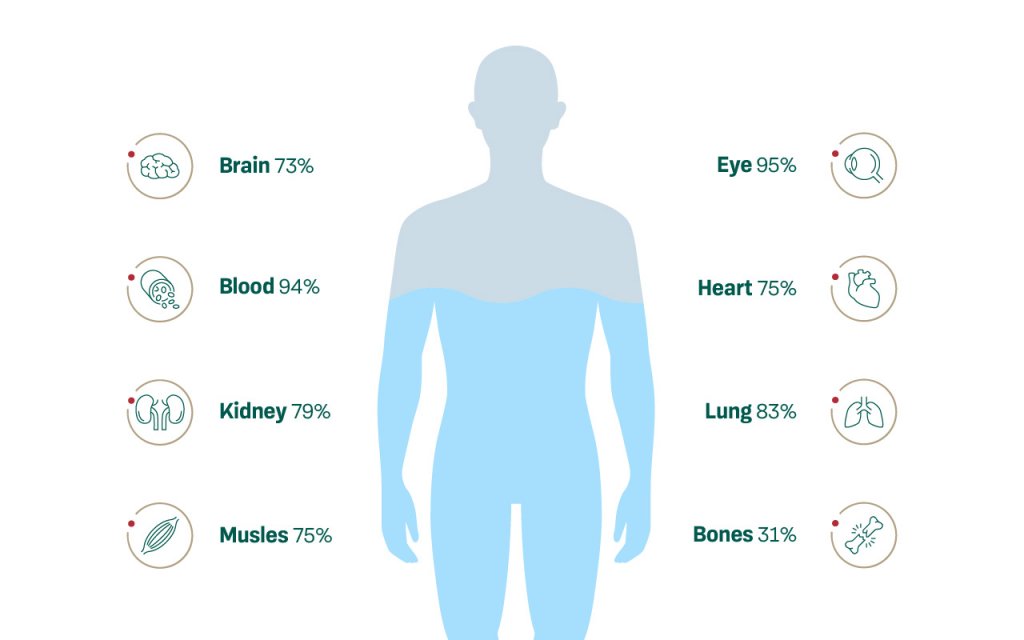
Thirdly, if you remember to drink a glass of water only after you had something to eat, it might take 2 hours or more for the water to get absorbed.
Use this information to your advantage in order to determine the best time for you to drink water, depending on how quickly you need or want it in your system.
How Can Your Body Absorb More Water?
It is extremely important to make sure that the body absorbs as much as water possible. If you are not properly hydrated, the body cannot function at its highest level and give its maximum, which can lead to various health problems. Then, how can you make sure that your body really gets enough water?
The first way to improve the absorption of water is to pay attention to the level of salt in the body, especially if you like being active and if you sweat a lot. The reason for this is that, when we sweat, we lose a significant amount of water through the salt in the sweat, and then we have to get this water back into the body.
Salt in your body is important because it helps your cells hold water and absorb nutrients from your intestines. If your body cannot provide enough salt, your cells cannot retain enough water and become dehydrated. However, keep in mind that too much salt is also not okay so do not overdo it.
Another thing you could do to make sure there is enough water in your body is to eat foods that are high in fibre. Fibre, like salt, helps your body retain water in the intestines instead of quickly passing it through. Thanks to this slow process, your body can use as much water as possible before letting it leave your body.
Healthy Drinking Practices
There are definitely some good and some poor ways of drinking water. If you do not follow the below-mentioned practices, your body will, of course, not be in grave danger. However, incorporating some healthy drinking habits into your daily routine will help your body absorb water in a healthier way.
1. Slow down…and take it easy
If you want to properly hydrate your body, it is important not to do it all at once. If you decide not to follow the below-mentioned instructions, your body will not be in any kind of grave danger. Your intestines cannot process and absorb unlimited quantities of water, so drinking a lot of water at once will result in water just passing through your body and leaving it as an excess.
2. Add lemon
Water is excellent on its own but adding lemon juice will make it even more special. Adding lemon to water has various benefits such as improving your digestive system and containing nutrients like vitamin C.
If you would like to create a healthy new habit, try drinking a glass of warm water with lemon first thing in the morning. This will not only speed up your digestion but also support weight loss, improve your skin, prevent kidney stones, etc.
3. The right timing
As already discussed, water can take up to 2 hours or more to get absorbed if you drink it after a meal. So it is all about the right timing: if you are planning on exercising, start drinking at least 2 hours before you get moving. This way your body will be able to stay properly hydrated.
A great idea is also to drink a glass of water as soon as you wake up, as your body probably did not get a chance to receive it while you were sleeping. So instead of scrolling through social media first thing in the morning rather pick up a glass of water.

4. Get a water bottle
If you keep a water bottle with you at all times, especially when you leave the house, you will be inclined to take a few sips every now and then. This way, your water consumption is definitely going to increase.
If you notice you are still struggling to remember it is time to drink some water, there are numerous apps you can use as a friendly reminder.
5. Switch to mineral water
If you really dislike the taste of water and even adding lemon juice does not cut it for you as you are used to fizzy drinks, swap it out with mineral water.
This way, your body will not only get that much-needed water, but mineral water also boasts numerous other benefits. Natural mineral water can help you with weight loss, digestive problems and improve your quality of life in general.
Different prebiotics are present in the foodstuffs we consume on an everyday basis
If we want to get enough prebiotics in our body, we do not have to reach for food supplements, since it is enough to just reach for the foodstuffs that we normally consume. An excellent and very popular source of prebiotics is chicory root due to its taste similar to coffee, without containing caffeine. Onion and garlic are also not just a tasty addition to our dishes, but they work great as a source of prebiotics. Some research has shown that they stimulate the growth of useful bifidobacteria in the intestines. That way they simultaneously prevent the growth of potentially dangerous bacteria.
Barley and oatmeal should also be mentioned since they contain beta-glucan. Beta-glucans have been the subject of numerous scientific studies, and some of them have proven that beta-glucans from barley and oatmeal stimulate the growth of probiotics from the lactobacillus genus. Bananas have also been the subject of many studies. Unripe (green) bananas contain a lot of so-called resistant starch. It has been scientifically proven that it has a prebiotic effect.
Choose chapter:



